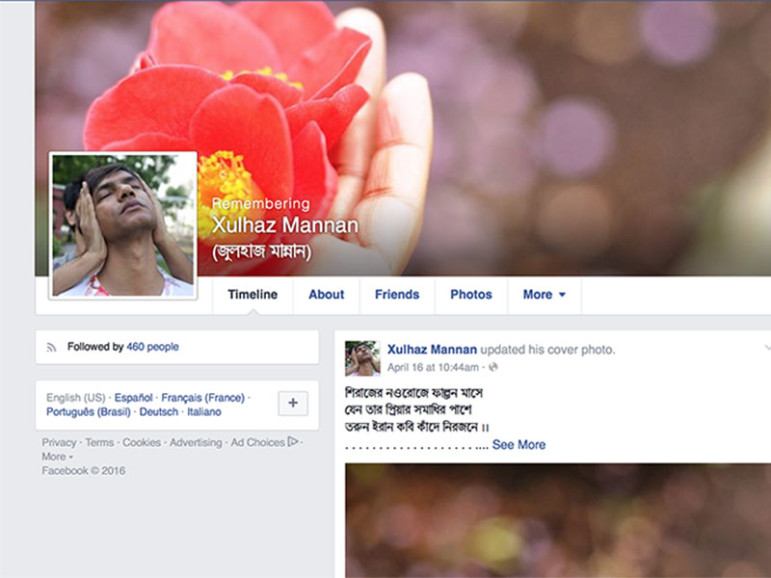NEW DELHI (RNS) U.S. Secretary of State John Kerry is urging Bangladesh’s prime minister to find those responsible for the hacking to death of two LGBT activists this week by suspected Islamists.
Five machete-wielding militants on Monday (April 25) stormed into the apartment of Xulhaz Mannan, 35, who worked for the U.S. Embassy in the Bangladeshi capital, Dhaka, and killed him and a friend who was also a gay rights activist.
In a phone call with Kerry on Thursday, Bangladeshi Prime Minister Sheikh Hasina insisted that her government has a “zero tolerance policy” against all terrorist activities and would hunt the killers, her press secretary Ehsanul Karim told a news conference.
The slaying of Mannan, who was also editor of Roopbaan, Bangladesh’s first magazine for gay, bisexual and transgender people, has deeply shocked that segment of Bangladesh’s population as well as the country’s embattled community of free-thinking intellectuals.
Homosexuality is illegal in Bangladesh, a majority conservative Sunni Muslim country. Since the rise of Islamism in recent years many LGBT Bangladeshis have gone into hiding, fearing violent attacks.
Mannan’s killing follows the hacking deaths of five secular bloggers and a publisher, all carried out since extremists called for the public execution of atheist writers in 2013.
Extremist groups have also targeted others they accuse of being threats to Sunni Islam.
In the past year, three Shiite Muslims, a muezzin of a Shiite mosque and one Hindu priest were also killed in gun and bomb attacks. And earlier this month, a law student and a university teacher were hacked to death.
Local Islamist factions as well as the group that calls itself the Islamic State claimed responsibility for some of the killings, while a Bangladeshi branch of al-Qaida this week said it carried out the slaying of Mannan and his friend, Mahbub Rabbi Tanoy.
The authorities insist international terrorist groups have no foothold in the country. For the killings, they blame local militants whom they allege are supported by the opposition alliance led by Bangladesh Nationalist Party and its Islamic allies.
Friends of Mannan and Tanoy told RNS by phone they were shocked by the killings and are certain Islamic extremists were responsible.
“I have also received several death threats,” one of them said, requesting anonymity. “I am planning to seek asylum in a safer country in Europe.”
Maulana Fariduddin Masoud, chairman of Bangladesh Jamiatul Ulama, a national body of Islamic scholars, condemned the killings.
“Every Muslim should abide by the law of the land,” he told RNS. “If some people killed the two men in the name of Islam, I must say that they have no knowledge of Islam and they have acted against the tenets of the religion.”
Rosaline Costa, the Roman Catholic executive director of Hotline Human Rights Trust Bangladesh, said finding the perpetrators and putting them on trial is not enough.
“A proper probe and justice for the killings won’t do much (to) protect the community,” she told the Union of Catholic Asian News. “The government must ensure that the discrimination of LGBT people ends in this country even though the so-called protectors of Islam might not like it.”
(Akhtar Ali is a correspondent based in New Delhi)





